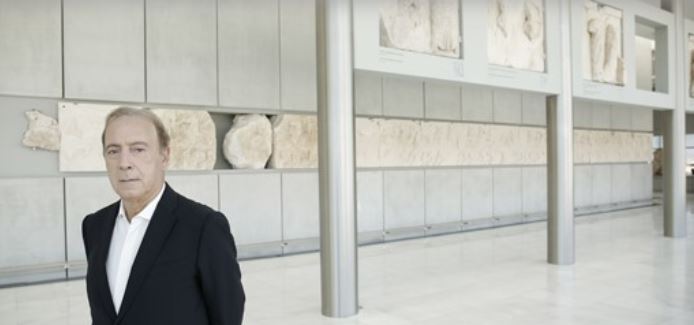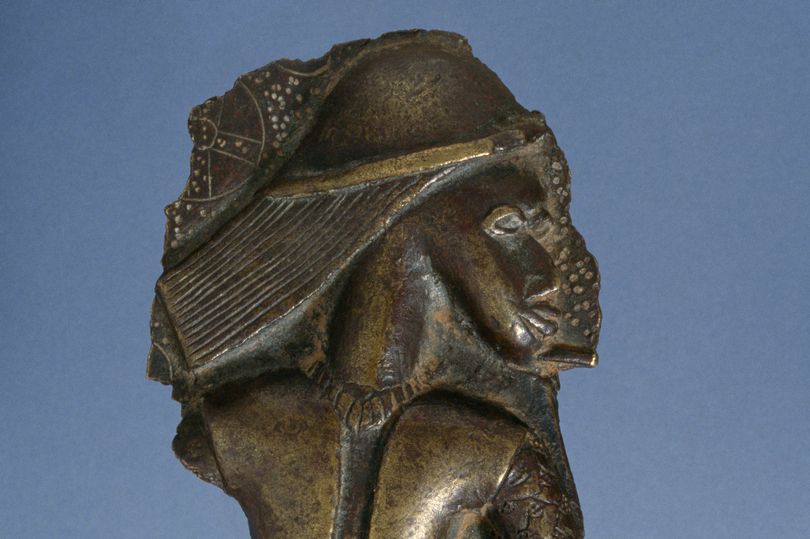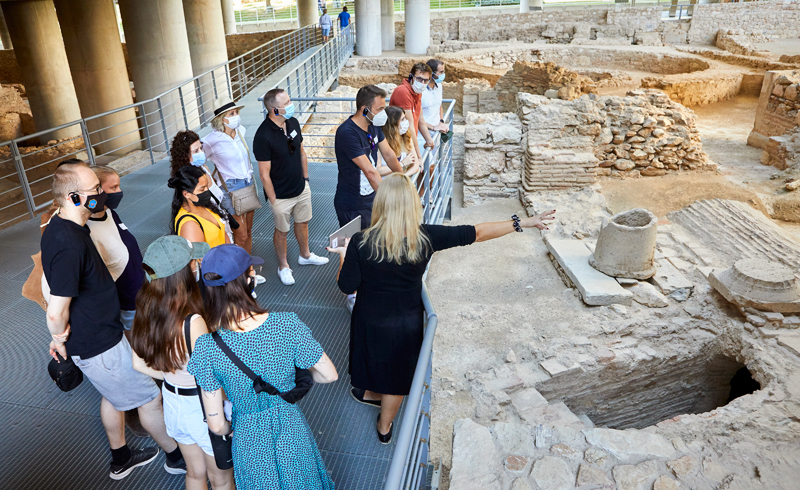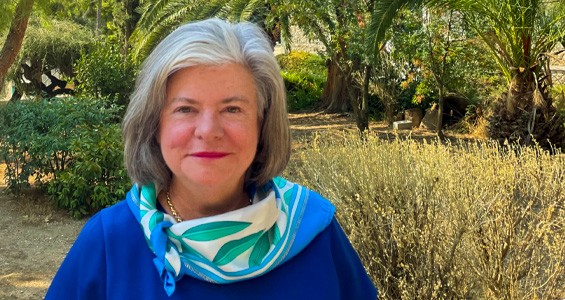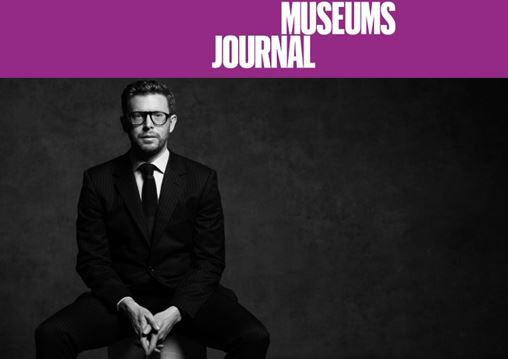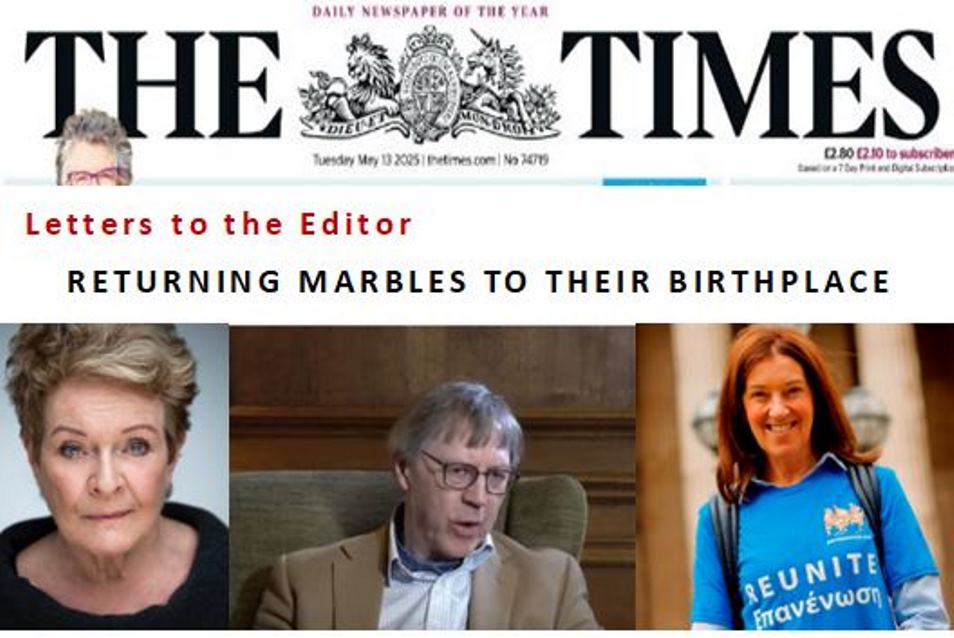The British Museum needs to show that it evolves, that it heeds to the considerations and demands of the universal community it claims to address, and that it shakes off the burdens and unsettled issues of the past. Certainly, the return and restoration of the unity of the Parthenon Sculptures is the greatest and gravest of these outstanding issues of historical, cultural, scientific, aesthetic, political and moral character.
Greek Minister of Culture and Sport , Dr Mendoni
Greece's Minister of Culture and Sports, Dr. Lina Mendoni addressed the student community of Cardozo School of Law in New York on 28 April 2022. The event was entitled “The Parthenon Marbles Case and the Universal Museum Myth: Policies and Politics” and organised by Professor David Rudenstine, the Cardozo Arts & Entertainment Law Journal, the Benjamin B. Ferencz Human Rights and Atrocity Prevention Clinic, and the Fame Center.
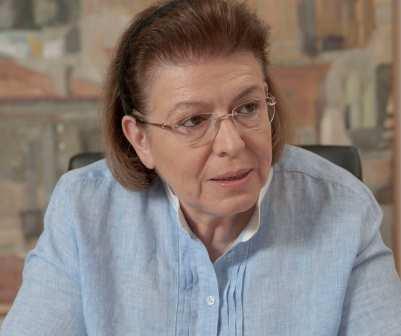
Dr Mendoni presented the views of the Greek Government on the issue of the Parthenon Sculptures and described this as "an issue with scientific, legal, political and ethical aspects and important international implications, which unfortunately still remains unresolved."
You can read Minister Mendoni's full speech in Greek or in English.
Lord Elgin's actions were revisited: "the Greek authorities and the international community have demonstrated with unshakable arguments the true events surrounding the removal of the Parthenon Sculptures by Lord Elgin some 200 years ago. Motivated by self-interest, opportunism and the prospects of profit, publicity and fame, Elgin used illicit and inequitable means – bribery, diplomatic pressure and false allegations – to seize and export from Greece, without real legal permission to do so, the Parthenon Sculptures and a host of other Greek antiquities, in a blatant act of serial theft. This theft, moreover, was aggravated by unprecedented vandalism, which caused ascertained immense damage to and destruction of the monuments, beyond the injury to their physical, conceptual and aesthetic integrity. Thereafter, acting as a true illicit antiquities dealer, Elgin sold the Sculptures to the British Museum through the British Government, which knowingly received the looted goods, ignoring the ensuing scandal in British and international public opinion, the direct denouncements and intense protests by eminent personalities of the time from all over Europe."
Dr Mendoni stresses the different efforts made by Greece beginning in the 19th century after Greece gained her independence. These efforts continued and will never stop. Dr Mendoni added: "Greece’s claim for the return and reunification of the Parthenon Sculptures rests on irrefutable historical, scientific, legal and moral foundations. Additionally, it has a broader cultural and ecumenical dimension." And continued to add that the Parthenon as "a monument registered on UNESCO’s World Heritage List, and in fact the one universally accepted as all-important and emblematic. The Parthenon, apart from being a creation of unique artistic significance and value, is recognized as a symbol of the very founding principles and values of European and Western Civilization per se, as well as of the global community of citizens represented by the United Nations."
A reminder of Greece's efforts with UNESCO to further urge the UK to consider the case of the sculptures during the 2021 ICPRCP session, when the decision concluded that this case is intergovernmental and that the British Government, ought to reconsider its position and enter into a bona fide dialogue with Greece regarding "its legal and fair demand". Expressed also was the "deep concern that the issue remains pending and frustration because its related previous recommendations have not yet been observed." Then just months later, in December 2021, the UN General Assembly unanimously adopted a resolution (supported by 111 countries) introduced by Greece and entitled: “Return or restitution of cultural property to the countries of origin”.
Dr Mendoni spoke about the aims of the British Museum to be recognised as a 'universal museum' and questioned this by adding: "The British Museum needs to show that it evolves, that it heeds to the considerations and demands of the universal community it claims to address, and that it shakes off the burdens and unsettled issues of the past. Certainly, the return and restoration of the unity of the Parthenon Sculptures is the greatest and gravest of these outstanding issues of historical, cultural, scientific, aesthetic, political and moral character."
"The Hellenic State constantly affirms its sincere intent to creatively support and cooperate with the British Museum, as it has already done with other museums. To avert creating a void in the Museum’s collections and exhibition program as a result of the return of the Parthenon Sculptures, Greece has offered in return recurrent temporary exhibitions and loans of prestigious antiquities and objects of high artistic and historical value that will keep the interest of the public high and renew its enthusiasm." Also added Minister Mendoni, an offer from Greece that is not new but continues to be made with generosity and good will.

